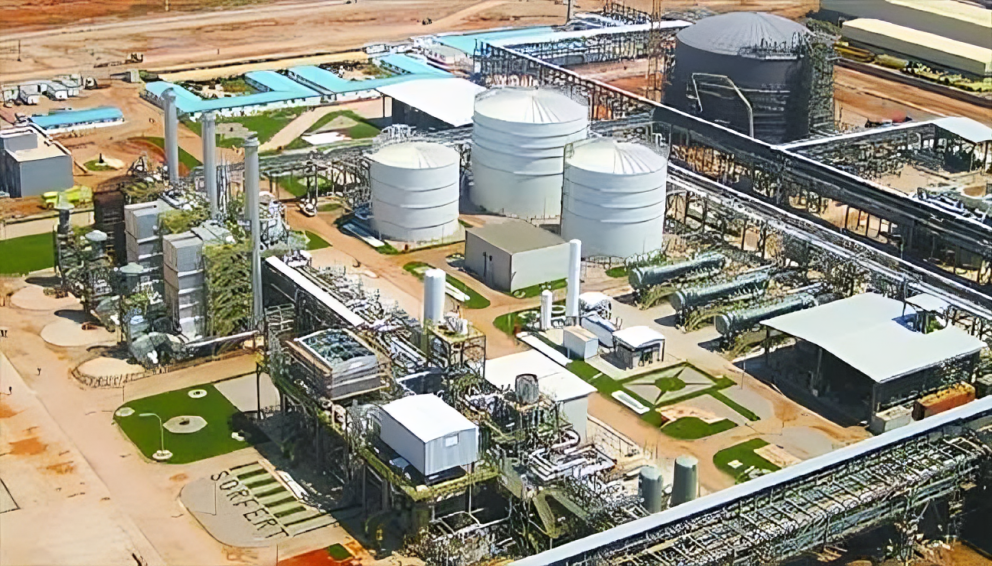387
The much-anticipated Dangote Refinery is set to transform Nigeria’s oil industry, creating a $21 billion annual market for Nigerian crude. This groundbreaking project, the largest single-train refinery in the world, marks a significant milestone in the country’s quest for energy independence and economic diversification.
The Dangote Refinery, located in Lagos, is expected to produce 650,000 barrels of oil per day (bpd). This capacity will not only meet Nigeria’s domestic fuel needs but also enable the country to become a major exporter of refined petroleum products. With this development, Nigeria can reduce its dependency on imported fuels, which has historically drained its foreign reserves.
Aliko Dangote, the chairman of Dangote Group, emphasized that the refinery will have a profound impact on the Nigerian economy. “This refinery will create a substantial market for Nigerian crude, stimulate job creation, and foster economic growth,” Dangote stated. The refinery is projected to employ over 100,000 people directly and indirectly, offering a significant boost to local employment and skills development.
The refinery’s advanced technology and infrastructure will allow it to produce a variety of refined products, including gasoline, diesel, aviation fuel, and polypropylene. This versatility ensures that Nigeria can meet both its domestic consumption needs and export demands, positioning the country as a key player in the global oil market.
Moreover, the refinery’s operations are expected to generate significant revenue for the Nigerian government through taxes, royalties, and other levies. This influx of funds can be reinvested in critical infrastructure and social services, contributing to the overall development of the nation.
The environmental impact of the refinery has also been a focal point, with the Dangote Group committing to adhere to stringent environmental standards. Advanced emission control technologies and sustainable practices have been incorporated into the refinery’s design to minimize its environmental footprint.
Industry experts have hailed the Dangote Refinery as a game-changer for Nigeria’s oil sector. By refining crude oil domestically, Nigeria can cut down on the high costs associated with importing refined petroleum products. This move is expected to stabilize fuel prices and reduce the frequent shortages that have plagued the country for years.
The refinery’s strategic location in Lagos, close to major shipping routes, enhances its export potential. Nigeria stands to benefit from increased foreign exchange earnings as it taps into new markets in Africa, Europe, and beyond.
While the Dangote Refinery is set to transform Nigeria’s oil industry, it also symbolizes a broader shift towards self-sufficiency and economic resilience. This ambitious project underscores the potential for local industries to drive national development, paving the way for other sectors to follow suit.
As Nigeria looks to the future, the success of the Dangote Refinery offers a beacon of hope. With its vast capacity and state-of-the-art technology, the refinery is poised to turn Nigeria into a refining hub, boosting the economy and improving the quality of life for millions of Nigerians.
Source: BusinessDay.ng
The Dangote Refinery, located in Lagos, is expected to produce 650,000 barrels of oil per day (bpd). This capacity will not only meet Nigeria’s domestic fuel needs but also enable the country to become a major exporter of refined petroleum products. With this development, Nigeria can reduce its dependency on imported fuels, which has historically drained its foreign reserves.
Aliko Dangote, the chairman of Dangote Group, emphasized that the refinery will have a profound impact on the Nigerian economy. “This refinery will create a substantial market for Nigerian crude, stimulate job creation, and foster economic growth,” Dangote stated. The refinery is projected to employ over 100,000 people directly and indirectly, offering a significant boost to local employment and skills development.
The refinery’s advanced technology and infrastructure will allow it to produce a variety of refined products, including gasoline, diesel, aviation fuel, and polypropylene. This versatility ensures that Nigeria can meet both its domestic consumption needs and export demands, positioning the country as a key player in the global oil market.
Moreover, the refinery’s operations are expected to generate significant revenue for the Nigerian government through taxes, royalties, and other levies. This influx of funds can be reinvested in critical infrastructure and social services, contributing to the overall development of the nation.
The environmental impact of the refinery has also been a focal point, with the Dangote Group committing to adhere to stringent environmental standards. Advanced emission control technologies and sustainable practices have been incorporated into the refinery’s design to minimize its environmental footprint.
Industry experts have hailed the Dangote Refinery as a game-changer for Nigeria’s oil sector. By refining crude oil domestically, Nigeria can cut down on the high costs associated with importing refined petroleum products. This move is expected to stabilize fuel prices and reduce the frequent shortages that have plagued the country for years.
The refinery’s strategic location in Lagos, close to major shipping routes, enhances its export potential. Nigeria stands to benefit from increased foreign exchange earnings as it taps into new markets in Africa, Europe, and beyond.
While the Dangote Refinery is set to transform Nigeria’s oil industry, it also symbolizes a broader shift towards self-sufficiency and economic resilience. This ambitious project underscores the potential for local industries to drive national development, paving the way for other sectors to follow suit.
As Nigeria looks to the future, the success of the Dangote Refinery offers a beacon of hope. With its vast capacity and state-of-the-art technology, the refinery is poised to turn Nigeria into a refining hub, boosting the economy and improving the quality of life for millions of Nigerians.
Source: BusinessDay.ng



